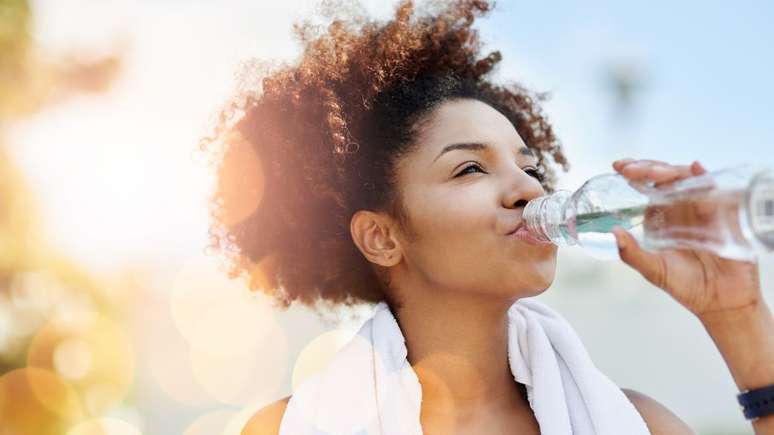In addition to creams and serums, find out how internal hydration is the basis for a radiant, protected and truly healthy skin
When we think about skin care, the first image that comes to mind are creams, lotions and serums. However, the truth is that the skin, our largest organ, directly reflects what happens internally. Hydration from within is the basis for the vitality and elasticity of the skin, significantly overcoming the effectiveness of any topical product. Drinking water is the most fundamental step, but the hydration of the skin goes beyond water glass. It also implies the intake of foods rich in nutrients and compounds that nourish skin cells and promote a robust protective barrier.
The human body consists of about 60% of water. Dehydration, even if it is light, affects each system, including the skin. When we are not well hydrated, the skin loses volume, becoming drier, opaque and subject to thin lines and wrinkles. Water helps to transport essential nutrients to skin cells and remove toxins while maintaining the cell renewal process in full operation.
Nutrition and hydration from the inside to the outside
In addition to pure water, various foods are real allies of skin health, providing essential liquids and nutrients:
1. Fruit and vegetables rich in water
The ingestion of foods such as watermelon (92% water), cucumber (96% water), strawberries (91% water) and lettuce (96% water) contribute significantly to daily hydration. These foods are also rich in vitamins and minerals that strengthen the skin.
2. Healthy fats
Foods such as avocado, walnuts, seeds and fat fish (salmon, sardine) are rich in omega-3 and omega-6 fatty acids. These fats are essential to maintain the lipid barrier of the skin, which maintains humidity and protects it from external irritants. A skin with a strong barrier is less subject to dryness, inflammation and diseases such as acne.
3. Vitamin C: the collagen driver
Collagen is the protein that gives firmness and elasticity to the skin. Vitamin C is an essential co-facators for its production. Without vitamin C, the synthesis of collagen is inefficient. Foods such as peppers, oranges, kiwis, broccoli and strawberries are excellent sources of this antioxidant.
4. Antioxidants: the protective shield
Antioxidants such as vitamins E, C and Flavonoids, fight free radicals, which are mainly responsible for cell damage and the skin of aging. Foods such as green tea, dark chocolate, red fruit and leafy vegetables are rich in these compounds.
Tips to maintain the hydration of the skin
Incorporating internal hydration into your beauty routine is simple:
- Constantly hydrated: Take a bottle of water with you and drink small sips during the day instead of large quantities simultaneously. Set hydration objectives and use applications or reminders if necessary;
- Eat your “glass of water”: Include fruit and vegetables rich in water at every meal and snacks. A salad for lunch, a dessert watermelon or a cucumber like snacks already make a big difference;
- Add flavor to your water: If you drink pure water is a challenge, add slices of lemon, cucumber, mint or ginger to make it more attractive;
- Avoid excess: Reduce the consumption of alcohol and caffeine, which have a diuretic effect and can lead to dehydration;
- Combine with the topics: The internal hydration is the base, but the use of moisturizing creams with ingredients such as hyaluronic acid and ceramids complete the process, helping the skin to retain humidity.
A well -hydrated skin is a skin that works well, which protects itself and that maintains its longest young appearance. Giving priority to hydration from within is the real secret to a beauty that radiates health.
Source: Terra
Ben Stock is a lifestyle journalist and author at Gossipify. He writes about topics such as health, wellness, travel, food and home decor. He provides practical advice and inspiration to improve well-being, keeps readers up to date with latest lifestyle news and trends, known for his engaging writing style, in-depth analysis and unique perspectives.








